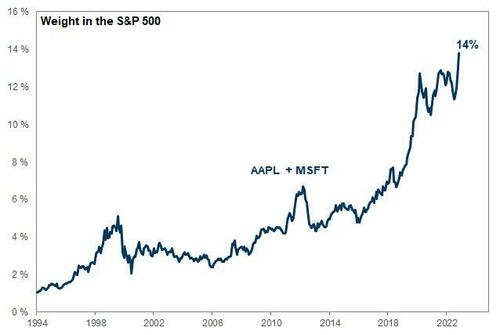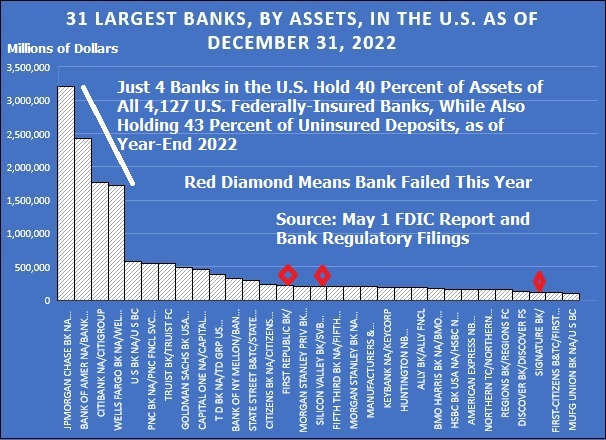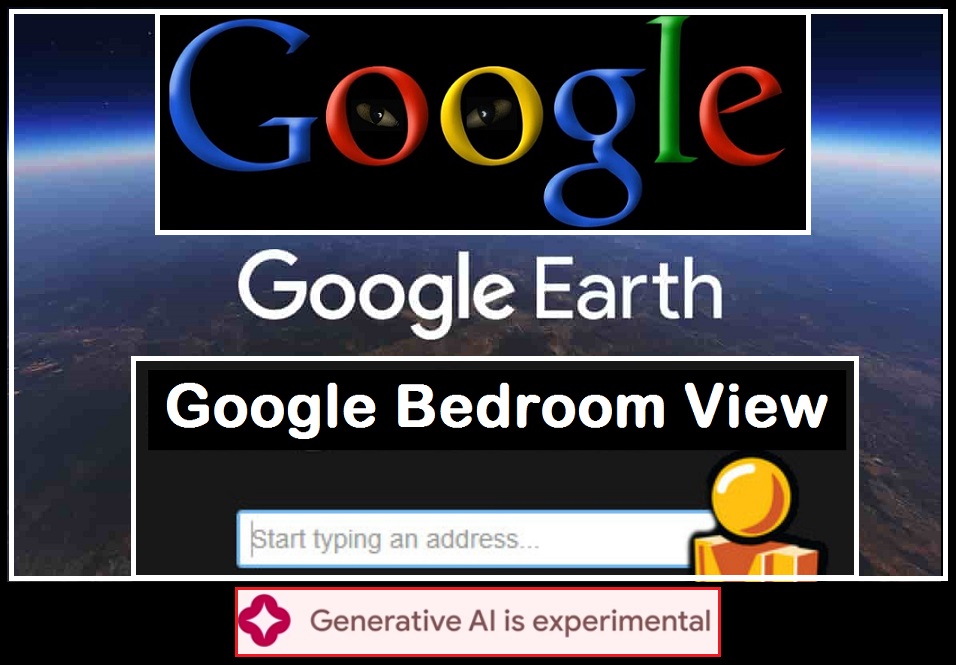
by Brian Shilhavy
Editor, Health Impact News
Google announced its new plans for AI this week at their annual I/O developer conference, and to say that not everyone in the Tech Industry was thrilled by their plans to integrate Generative AI into their search engine, would be an understatement.
Emily Dreibelbis, writing for PC Magazine, published one of the more apocalyptic articles warning that Google could basically destroy most websites on the Internet.
Why Google’s New ChatGPT-Style Search Could Kill the Websites That Feed It
Google just previewed its chatbot-style vision for the future of web search results. But if it mines publications’ hard work without compensating them, many may not survive this shift.
The typical PCMag product reviewer’s home is a web of wires and blinking LEDs from laptops, smartwatches, and scores of other gadgets. Analysts spend weeks performing hands-on testing to produce in-depth buying guides that help readers get the most from technology.
But what if that wealth of content is reduced to grist for a bigger mill? Google’s new AI search experience pushes links to articles below the digital fold, summarizing the response to a search query up top as a conversational, ChatGPT-style paragraph. Content in the answer, a mini-article in itself, can theoretically come from PCMag and a host of other publications.
To start, this AI experience will only apply to searches for which Google algorithms can produce helpful results, The Verge reports. But it’s unclear how many searches that will cover, and whether Google will compensate or cite its sources. The company has said only that it’s “committed to continue sending valuable traffic to sites across the web.”
Writers watching a live demo of the new experience at Google’s I/O conference found it chilling. “Did Google receive that e-bike and set it up?” asks Angela Moscaritolo, PCMag’s health and fitness expert. She reviewed the Aventon Aventure Ebike, which the demo suggested for commuters as “good for hill climbing.”
“Did it take it on the beach and all over town to determine if it’s actually good for hill climbing? If you didn’t verify the claim your AI is presenting, then you need to cite that source,” she says.
With what we’ve seen from Google thus far, users can’t truly know if the information came from a PCMag article, customer reviews, marketing claims on a manufacturer’s product page—or some undistinguished mish-mosh of all that. The even more chilling thing for society as a whole? If Google goes down this path, that source material could end up less likely to be from trusted publications and sources, because the revenue hit they take means they may not be around.
C’Mon, Google: Don’t Trigger a Web Media Meltdown!
The backlash has already begun. AI—and its tendency to plagiarize—is at the forefront of the writers’ strike in Hollywood. And multiple visual artists have filed lawsuits against AI image-generator platforms like DALL-E and Midjourney for using their work without compensation. (Full article.)
Maggie Harrison, writing for Futurism, issued similar warnings for the future of independent journalism due to Google’s plan for Generative AI, noting that Google still owns 91% of all Internet searches.
Google Unveils Plan to Demolish the Journalism Industry Using AI
This could change everything.
Remember back in 2018, when Google removed “don’t be evil” from its code of conduct?
It’s been living up to that removal lately. At its annual I/O in San Francisco this week, the search giant finally lifted the lid on its vision for AI-integrated search — and that vision, apparently, involves cutting digital publishers off at the knees.
Google’s new AI-powered search interface, dubbed “Search Generative Experience,” or SGE for short, involves a feature called “AI Snapshot.” Basically, it’s an enormous top-of-the-page summarization feature. Ask, for example, “why is sourdough bread still so popular?” — one of the examples that Google used in their presentation — and, before you get to the blue links that we’re all familiar with, Google will provide you with a large language model (LLM) -generated summary. Or, we guess, snapshot.
“Google’s normal search results load almost immediately,” The Verge’s David Pierce explains. “Above them, a rectangular orange section pulses and glows and shows the phrase ‘Generative AI is experimental.’ A few seconds later, the glowing is replaced by an AI-generated summary: a few paragraphs detailing how good sourdough tastes, the upsides of its prebiotic abilities, and more.”
At first glance, the change might seem relatively benign. Often, all folks surfing the web want is a quick-hit summary or snippet of something anyway.
But it’s not unfair to say that Google, which in April, according to data from SimilarWeb, hosted roughly 91 percent of all search traffic, is somewhat synonymous with, well, the internet. And the internet isn’t just some ethereal, predetermined thing, as natural water or air. The internet is a marketplace, and Google is its kingmaker.
As such, the demo raises an extremely important question for the future of the already-ravaged journalism industry: if Google’s AI is going to mulch up original work and provide a distilled version of it to users at scale, without ever connecting them to the original work, how will publishers continue to monetize their work?
“Google has unveiled its vision for how it will incorporate AI into search,” tweeted The Verge’s James Vincent. “The quick answer: it’s going to gobble up the open web and then summarize/rewrite/regurgitate it (pick the adjective that reflects your level of disquiet) in a shiny Google UI.” (Full Article.)
Real vs. Imagined Dangers of AI
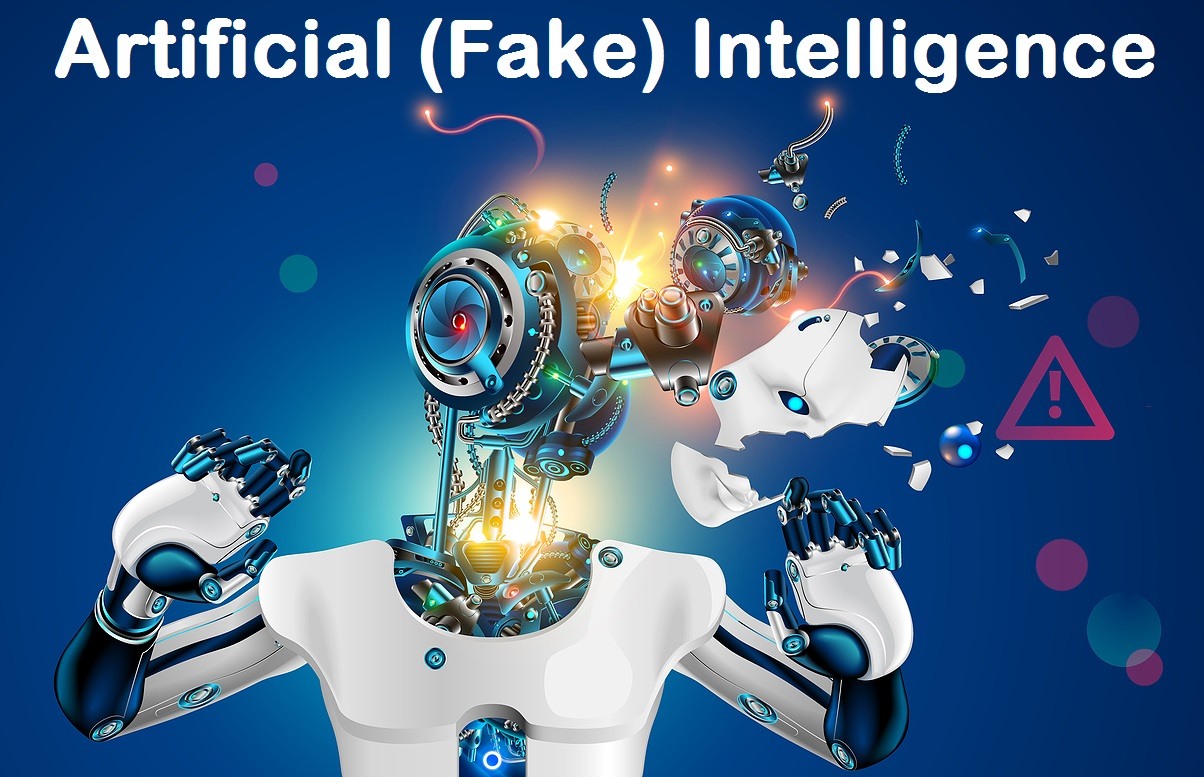
This is one of the REAL dangers of AI, the fact that the largest technology companies that control the Internet could very easily drive everyone else out of business and thereby control all the content on the Internet.
And in fact, that trend has already started in the technology sector, as year-to-date there have already been 193,860 employees laid off in the technology sector, with many tech businesses failing, as well as some of their top banks also failing, like Silicon Valley Bank, that funded these companies.
But before I summarize the real dangers that the new AI software presents to society, let me again debunk all the #AIhype that is helping to feed this frenzy, which is that AI will soon be more intelligent than humans and replace us, since almost nobody else in the Alternative Media is exposing this.
Every day I still see these science fiction articles in the Alternative Media about how robots are going to replace us and take over the world.
Earlier this week we featured a video produced by The Discovery Institute and their “Science Uprising” series that featured Oxford professor of mathematics John Lennox and Baylor University computer engineer Robert J. Marks, explaining how AI can never replace humans. It is a short 10-minute video well worth watching.
Last year we published several articles showing how the development of “fully autonomous self-driving vehicles” has been a huge failure after decades of spending $billions on trying to replace human drivers, and that many companies are now pulling their funding for such projects. See:
The Fantasy of Autonomous Self-Driving Cars is Coming to an End as Tesla Faces DOJ Criminal Probe
Elon Musk and his Tesla company were in the news again this week, as US senators sent him a letter saying they were “incredibly troubled” by shocking vehicle safety flaws. See:
US senators call Tesla’s safety review a “sham,” demand answers from Musk
The Information recently reported how a new online pharmacy company tried to use AI automation “to cut labor costs and increase productivity” but was a complete disaster.
How an Online Pharmacy’s Automation Project Went Awry
In 2022, internet pharmacy startup Capsule launched an ambitious plan to cut labor costs and increase productivity with a new high-tech facility in New York, its biggest market. The disorder that followed offers a window into how risky such automation projects can be.
Beginning in August, Capsule customers in the city began experiencing dayslong delays in the delivery of medicines that in some cases were critical to their health. The cause: A high-tech new Capsule facility in Harlem, the centerpiece of which was an automated system with a robotic arm for dispensing medicines, was malfunctioning, according to nine current and former Capsule employees. The startup had just relocated its New York operations to the new site from a facility in midtown Manhattan as part of an ambitious project, code-named NYC 3.0, intended to cut labor costs and increase the number of orders Capsule could handle.
Instead, complaints began pouring into online review sites about the pharmacy’s service in New York as delays on customer orders mounted. “We’re imploding and creating a mess with multiple failures on the same orders,” a Capsule executive wrote in late September in an internal Slack channel devoted to the situation. (Full article.)
We also recently reported how NYU Professor and Meta Platforms Chief AI Scientist Yann LeCun stated that “ChatGPT Isn’t Remarkable.” See:
The “Godfather of AI” Says Doomsayers Are Wrong and ChatGPT Isn’t Remarkable – Mainly an Advanced Disinformation Tool
One of things LeCun stated was:
We’re not going to be able to use a technology like ChatGPT or GPT4 to train a robot to clear a table or fill up the dishwasher.
Even though this is a trivial task for a child. We still can’t do it. We still don’t have level five [fully] autonomous driving. That requires a complete different skill set you can’t learn by reading text.
So let’s please move on from the science fiction articles about AI replacing humans. If that’s what gets your adrenaline flowing, then go watch your favorite Star Trek or Star Wars programs, or the new Transformer movie coming out.
It’s all entertainment with no basis in reality.
The Entire U.S. Economy is Now in the Hands of a Few Technology Companies
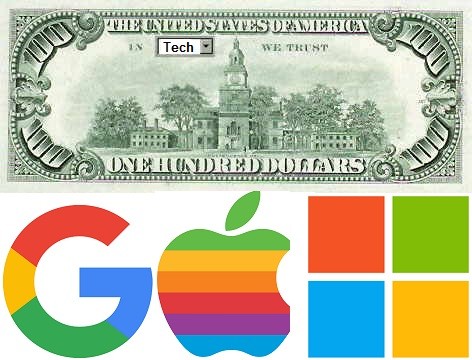
While massive layoffs have been happening in the technology sector since 2022, huge amounts of money have also been pouring into Big Tech to fund new AI software.
And this investment in the future of AI, is the main thing holding up the U.S. stock market right now.
Five technology stocks, Google, Apple, Microsoft, Meta and Amazon, have accounted for 89% of the S&P 500 YTD price return.
One week ago, Goldman cranked up the alert level on the record collapse in market breadth to 11 when, echoing a similar warning from JPM and SocGen, the bank’s chief equity strategist David Kostin wrote that “the recent sharp decline in equity market breadth points to elevated risk of a drawdown.” Looking at the recent performance of the GAMMAs (Google, Apple, Microsoft, Meta and Amazon), Kostin observed that the five mega-cap tech stocks have accounted for 89% of the S&P 500 YTD price return, and warned that market breadth has contracted to one standard deviation below average for the first time since 2020.
[T]he relative weight of the top 2 companies – AAPL and MSFT – is now going parabolic, as Goldman’s Scott Rubner showed earlier this week.
As you can see from the image above, Apple and Microsoft now account for 14% of the entire S&P 500.
To state that this is a danger to the U.S. economy is an understatement, since they are betting America’s future on AI.
The company that is currently the leader in the race of all this new AI technology so far, is OpenAI, the company supplying Microsoft’s ChatGPT.
Their CEO is Sam Altman, and it was reported this week that OpenAI’s losses were double than what was previously reported, as the company lost $540 million in developing ChatGPT.
OpenAI’s Losses Doubled to $540 Million as It Developed ChatGPT
OpenAI’s losses roughly doubled to around $540 million last year as it developed ChatGPT and hired key employees from Google, according to three people with knowledge of the startup’s financials. The previously unreported figure reflects the steep costs of training its machine-learning models during the period before it started selling access to the chatbot.
Seemingly alluding to this possibility, Altman said in a public appearance Wednesday that OpenAI is “going to be the most capital-intensive startup in Silicon Valley history,” said a person who attended. Besides covering the costs of training its software, it may also need to pay for access to data sets that aren’t on the internet and that it would want to use to develop its AI.
Talk of such a massive fundraising haul reflects the outsize costs of developing AI that allows people to communicate with or command the software using conversational language. It also raises questions about whether other startups in this new sector can keep up with OpenAI. Earlier this year it entered into a multibillion-dollar deal with Microsoft, which is supplying the startup with cash and Azure cloud credits to fund its needs. Other startups competing with OpenAI to build large-language models have been able to tap increasing investor appetite for such deals, though not to the same degree as the company. (Source.)
The spending frenzy on AI is forcing smaller tech companies to try and keep up, and many are failing.
The larger companies like Google and Microsoft, still have plenty of cash reserves, but their spending is dramatically increasing to support all the infrastructure needed for the new AI software.
AI Push Drives Up Capex for Meta, Alphabet and Microsoft
Big tech companies such as Meta Platforms, Alphabet and Microsoft have become more careful about spending over the past few months, with each laying off thousands of people. But all three are ramping up spending on servers and other technical infrastructure to gain the capacity to build and sell more artificial intelligence tools.
The spending reflects the gold rush mentality that has taken hold in tech as companies race to find ways of incorporating generative AI tools—which create humanlike writing, complex images and videos, and computer code—into their products and services. But such AI software is built on large-language models that require heavy amounts of computing power using expensive specialized chips.
Meta’s first-quarter capital expenditures hit $7.1 billion, the company revealed last week, 28% more than a year earlier. Microsoft’s capex rose 24% to $7.8 billion from a year ago. (Source.)
For other tech companies, they need to find investors, and most of that funding is drying up with all the bank runs and failures. Cash is not only flowing out of the smaller regional banks that are on the verge of collapse, but also among the top 4 mega banks.
The frenzy that is causing everyone to continue pouring money into AI is best summed up by Sam Altman himself:
Altman has said selling access to its technology will eventually more than make up for the costs. After the software reaches a certain level of capability, “it’s basically, like, push a button and say how much money you want the company to get.” (Source.)
Hmmm… That sounds a lot like what another “Sam” said just before his entire company blew up and took down many famous investors as well, FTX founder Sam Bankman-Fried, who is now facing federal criminal charges and has lost his entire fortune, and put the entire cryptocurrency exchange market at risk of collapsing.

So this is the REAL threat that AI presents to society. It is looking more and more every day that we are looking at a total market collapse at some point, and then only the largest banks and the largest technology companies will be left, because they are “too big to fail,” especially since the U.S. military and their Intelligence agencies all depend on Big Tech, who hold all their data in their Cloud Computing data centers.
This appears to be the goal of the Wall Street billionaires and their bankers, since there is no way they can pay off their debts. Just crash the entire financial system, and choose which Tech companies and banks survive.
Then they will have total control of the flow of money as they require digital IDs and work towards a Central Bank Digital Currency, operated by the Big Tech companies that survive, who will also control the flow of information through AI.
Will enough Americans wake up soon enough to prevent this from happening, or will it take a total collapse of the economy to reveal what is really happening with this “Great Reset”?
Related:
An Invitation to the Technologists to Join the Winning Side
Comment on this article at HealtImpactNews.com.
This article was written by Human Superior Intelligence (HSI)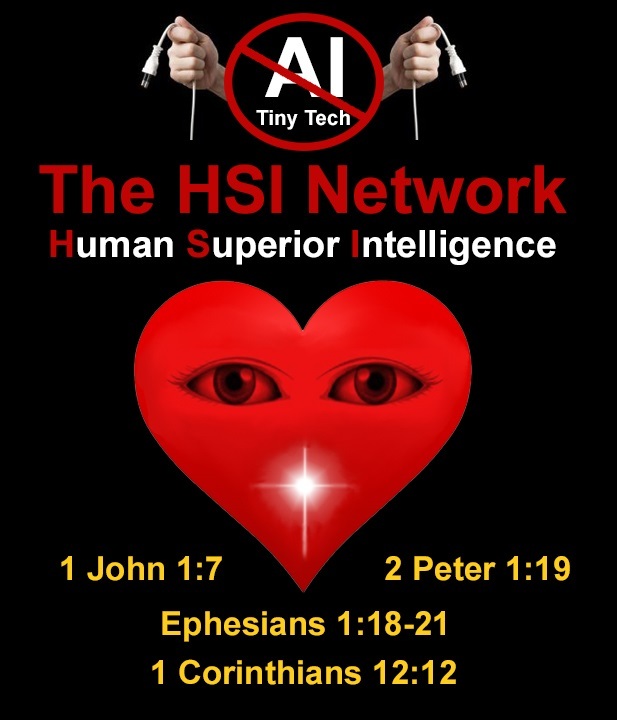
See Also:
Understand the Times We are Currently Living Through
New FREE eBook! Restoring the Foundation of New Testament Faith in Jesus Christ – by Brian Shilhavy
Who are God’s “Chosen People”?
KABBALAH: The Anti-Christ Religion of Satan that Controls the World Today
Christian Teaching on Sex and Marriage vs. The Actual Biblical Teaching
Exposing the Christian Zionism Cult
The Bewitching of America with the Evil Eye and the Mark of the Beast
Jesus Christ’s Opposition to the Jewish State: Lessons for Today
Identifying the Luciferian Globalists Implementing the New World Order – Who are the “Jews”?
The Brain Myth: Your Intellect and Thoughts Originate in Your Heart, Not Your Brain
What is the Condition of Your Heart? The Superiority of the Human Heart over the Human Brain
The Seal and Mark of God is Far More Important than the “Mark of the Beast” – Are You Prepared for What’s Coming?
The Satanic Roots to Modern Medicine – The Image of the Beast?
Medicine: Idolatry in the Twenty First Century – 10-Year-Old Article More Relevant Today than the Day it was Written
Having problems receiving our emails? See:
How to Beat Internet Censorship and Create Your Own Newsfeed
We Are Now on Telegram. Video channels at Bitchute, and Odysee.
If our website is seized and shut down, find us on Telegram, as well as Bitchute and Odysee for further instructions about where to find us.
If you use the TOR Onion browser, here are the links and corresponding URLs to use in the TOR browser to find us on the Dark Web: Health Impact News, Vaccine Impact, Medical Kidnap, Created4Health, CoconutOil.com.




